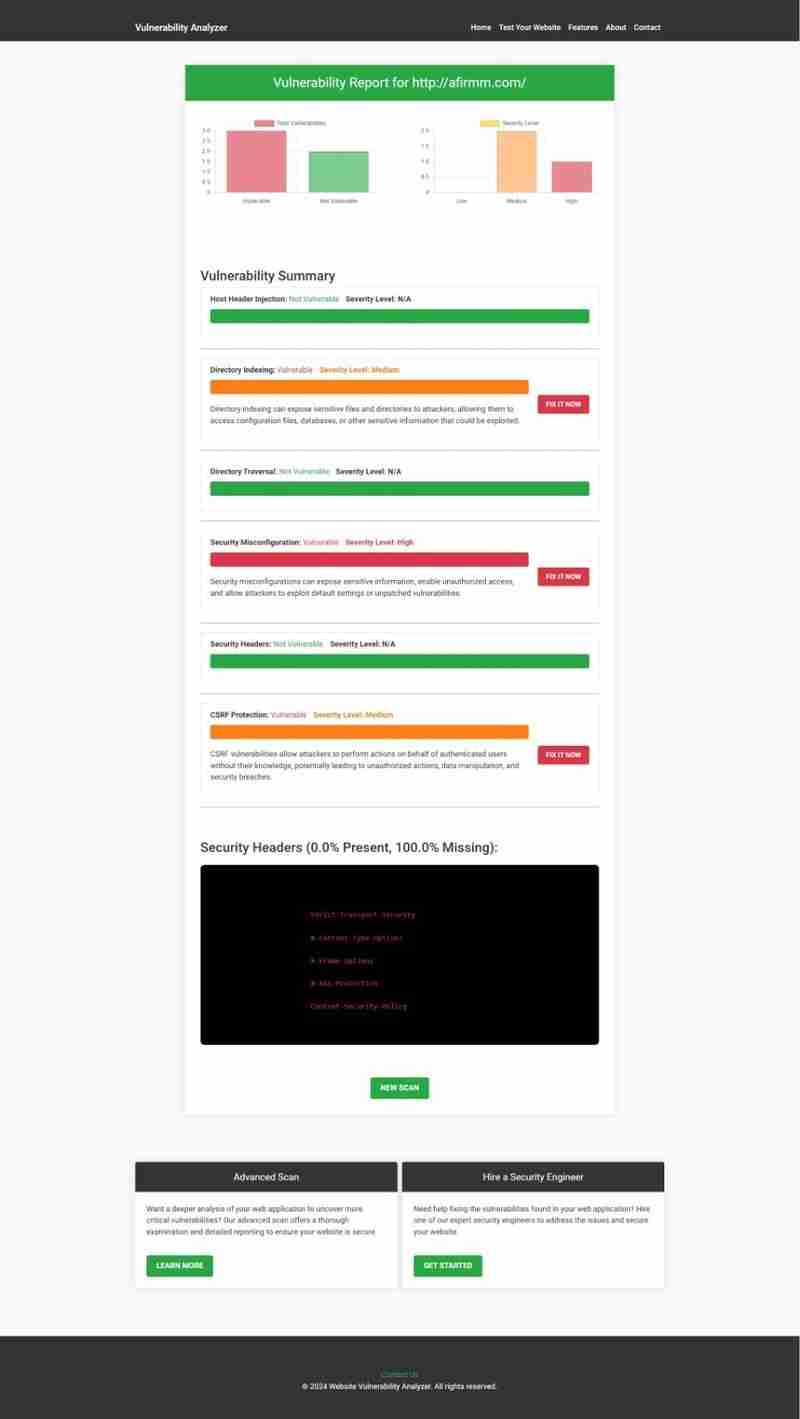Host Header Injection in Laravel: Risks and Prevention
Detailed explanation and defense strategies of host header injection vulnerability in Laravel
This article will delve into Host Header Injection this serious web application vulnerability, including applications based on the Laravel framework. This vulnerability allows attackers to manipulate the host header in HTTP requests, resulting in security risks such as cache poisoning, password reset attacks, and open redirects. We will analyze its risks in detail, provide examples, and provide corresponding defense strategies.

What is host header injection?
Host header injection occurs when a web application blindly trusts the host header provided in the HTTP request. This vulnerability could lead to the following malicious actions:
- Redirect users to malicious websites.
- Tampering with the password reset link.
- Control server behavior.
Utilization of host header injection in Laravel
There is a security risk if a Laravel application relies on the host header in key decisions without validating it. Let's look at an example.
Vulnerable code examples:
<code>// routes/web.php
use Illuminate\Support\Facades\Mail;
Route::get('/send-reset-link', function () {
$user = User::where('email', 'example@example.com')->first();
if ($user) {
$resetLink = 'http://' . $_SERVER['HTTP_HOST'] . '/reset-password?token=' . $user->reset_token;
// 发送重置链接
Mail::to($user->email)->send(new \App\Mail\ResetPassword($resetLink));
return "密码重置链接已发送。";
}
return "用户未找到。";
});</code>In this example, the application uses the host header directly to generate the password reset link. An attacker could exploit this vulnerability by crafting a malicious request:
<code>GET /send-reset-link HTTP/1.1 Host: malicious.com</code>
The generated reset link will point to malicious.com, potentially compromising user security.
Defense against host header injection in Laravel
-
Verify host header: Laravel provides a
APP_URLenvironment variable that can be used to ensure the validity of the host header:
<code>// routes/web.php
Route::get('/send-reset-link', function () {
$user = User::where('email', 'example@example.com')->first();
if ($user) {
$resetLink = config('app.url') . '/reset-password?token=' . $user->reset_token;
// 发送重置链接
Mail::to($user->email)->send(new \App\Mail\ResetPassword($resetLink));
return "密码重置链接已发送。";
}
return "用户未找到。";
});</code>-
Restrict trusted hosts: Use Laravel's
trustedproxiesmiddleware to restrict requests to trusted hosts. Update yourconfig/trustedproxy.phpfile:
<code>return [
'proxies' => '*',
'headers' => [
Request::HEADER_X_FORWARDED_ALL,
Request::HEADER_FORWARDED,
],
'host' => ['example.com'], // 添加可信主机
];</code>-
Security configuration: Make sure the
.envsettings in yourAPP_URLfile are correct:
<code>APP_URL=https://yourdomain.com</code>
Test for vulnerabilities with free tools
You can use our free website security scanner to test for host header injection vulnerabilities.
 Screenshot of the free tool webpage where you can access the security assessment tool
Screenshot of the free tool webpage where you can access the security assessment tool
Additionally, after using our tool to conduct a vulnerability assessment to check for website vulnerabilities, you can generate a detailed report to understand the security status of your application.
 A sample vulnerability assessment report generated using our free tool, providing insights into possible vulnerabilities
A sample vulnerability assessment report generated using our free tool, providing insights into possible vulnerabilities
Conclusion
Host header injection is a critical vulnerability that can compromise the security of Laravel applications. You can protect your application by validating input, limiting trusted hosts, and using the correct configuration.
Test your website today with our Website Security Checker and take the first step towards staying safe online.
The above is the detailed content of Host Header Injection in Laravel: Risks and Prevention. For more information, please follow other related articles on the PHP Chinese website!

Hot AI Tools

Undresser.AI Undress
AI-powered app for creating realistic nude photos

AI Clothes Remover
Online AI tool for removing clothes from photos.

Undress AI Tool
Undress images for free

Clothoff.io
AI clothes remover

AI Hentai Generator
Generate AI Hentai for free.

Hot Article

Hot Tools

Notepad++7.3.1
Easy-to-use and free code editor

SublimeText3 Chinese version
Chinese version, very easy to use

Zend Studio 13.0.1
Powerful PHP integrated development environment

Dreamweaver CS6
Visual web development tools

SublimeText3 Mac version
God-level code editing software (SublimeText3)

Hot Topics
 11 Best PHP URL Shortener Scripts (Free and Premium)
Mar 03, 2025 am 10:49 AM
11 Best PHP URL Shortener Scripts (Free and Premium)
Mar 03, 2025 am 10:49 AM
11 Best PHP URL Shortener Scripts (Free and Premium)
 Working with Flash Session Data in Laravel
Mar 12, 2025 pm 05:08 PM
Working with Flash Session Data in Laravel
Mar 12, 2025 pm 05:08 PM
Working with Flash Session Data in Laravel
 Build a React App With a Laravel Back End: Part 2, React
Mar 04, 2025 am 09:33 AM
Build a React App With a Laravel Back End: Part 2, React
Mar 04, 2025 am 09:33 AM
Build a React App With a Laravel Back End: Part 2, React
 Simplified HTTP Response Mocking in Laravel Tests
Mar 12, 2025 pm 05:09 PM
Simplified HTTP Response Mocking in Laravel Tests
Mar 12, 2025 pm 05:09 PM
Simplified HTTP Response Mocking in Laravel Tests
 cURL in PHP: How to Use the PHP cURL Extension in REST APIs
Mar 14, 2025 am 11:42 AM
cURL in PHP: How to Use the PHP cURL Extension in REST APIs
Mar 14, 2025 am 11:42 AM
cURL in PHP: How to Use the PHP cURL Extension in REST APIs
 12 Best PHP Chat Scripts on CodeCanyon
Mar 13, 2025 pm 12:08 PM
12 Best PHP Chat Scripts on CodeCanyon
Mar 13, 2025 pm 12:08 PM
12 Best PHP Chat Scripts on CodeCanyon
 Announcement of 2025 PHP Situation Survey
Mar 03, 2025 pm 04:20 PM
Announcement of 2025 PHP Situation Survey
Mar 03, 2025 pm 04:20 PM
Announcement of 2025 PHP Situation Survey







